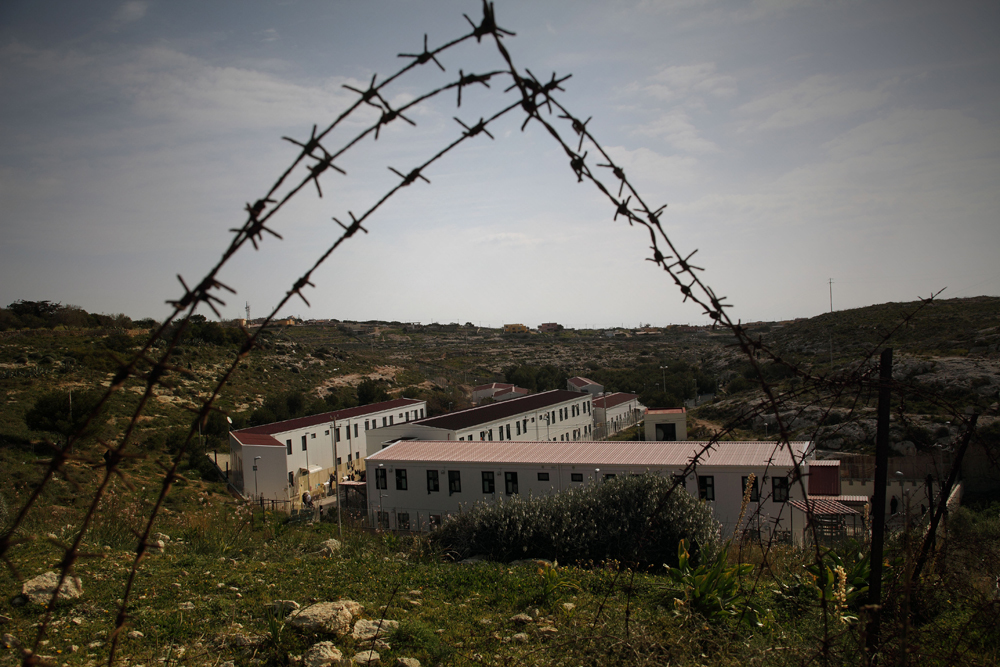Authorities in Uttar Pradesh have launched a crackdown on Rohingya refugees, leading to the arrest and detention of dozens of people apprehended during raids at camps. The arrests are part of a wider, nationwide policy targeting refugees from Myanmar. With no legal limits on detention, refugees can be held indefinitely. Recently, when a group who […]
Arbitrary detention
Imprisonment Rather Than Protection: Pylos Survivors Detained in Greece
On 14 June, hundreds of refugees and migrants lost their lives in the Mediterranean’s deadliest shipwreck in nearly a decade. As many as 750 individuals are believed to have been in the boat when it capsized, but just 104 were found alive. Taken ashore, survivors were met not with protection and sanctuary, but detention in […]

UN Experts Call on Ethiopia to Halt Mass Deportations and Detentions of Eritreans
Ethiopian authorities must halt the mass deportation of Eritrean refugees, UN experts say. The country, which has hosted thousands of Eritreans for years, has also been accused of arbitrarily detaining large numbers of Eritreans, often on the ground that they lack documentation–despite the fact that the country’s Refugee and Returnee Service (RSS) stopped registering newly […]

Malaysia: Joint Submission to the Universal Periodic Review
Malaysia’s immigration enforcement regime—including detention, forced removals, criminal prosecution, and corporal punishment—is one of the world’s more punitive, arbitrary, and harmful systems. In a submission to the UPR, the GDP and APRRN highlight areas of particular concern. […]

Trapped Between Borders: Tunisia’s Alarming Treatment of Sub-Saharan Migrants
Tunisia has come under renewed criticism from rights groups after authorities rounded up sub-Saharan migrants and asylum seekers and forcefully relocated them to a buffer zone between the Tunisian and Libyan border. Videos shared online show men, women, and children–some with injuries–stranded close to the sea, reportedly without any food or water. Surging Discrimination According […]

Chile: Human Rights Monitoring Bodies Denounce Proposed Legal Reforms Increasing Detention Measures for Undocumented Migrants and Asylum Seekers
In a communication to Chile, a group of UN experts have condemned proposed reforms to the country’s migration and asylum legislation. If approved, the reforms would provide criminal penalties for irregular entry and stay, including prison sentences and fines, and increase administrative detention measures for people awaiting deportation. The effort also reflects policy proposals in […]

A Missed Opportunity in Japan
On 7 March, Japan’s cabinet passed a bill amending the country’s immigration and asylum legislation. The bill, which has been slated by rights groups, reinforces the country’s ability to indefinitely detain migrants and asylum seekers. It is now due to be voted on by the country’s parliament. With regards to detention, the amendment bill to […]

ITALY: Human Rights Court Rules Against “Hotspot” Detention
In an important ruling, the European Court of Human Rights (ECtHR) has found that Italy breached Articles 3, 4, and 5 of the European Convention on Human Rights (ECHR) in its treatment of four Tunisian claimants who were detained and deported in October 2017. In October 2017, four Tunisians attempted to travel to Italy from […]

Lithuania: Follow-Up Report to the UN Committee Against Torture
The Human Rights Monitoring Institute and the Global Detention Project jointly issued an alternative follow-up report to the UN Committee on Torture (CAT) with regards to the recommendations contained in Paragraph 12 of the committee’s Concluding Observations CAT/C/LTU/CO/4 on the fourth periodic report of Lithuania. […]

Mandatory Detention for all Irregular Arrivals, and Funding a Detention Centre in France? The Latest from the UK
Over the past week, the UK has proposed a number of controversial and extraordinary measures aimed at stopping irregular migration, including proposing new legislation that imposes mandatory detention for anyone crossing the Channel by boat as well as a joint initiative with France that includes helping pay for a new detention centre there. On 7 […]




